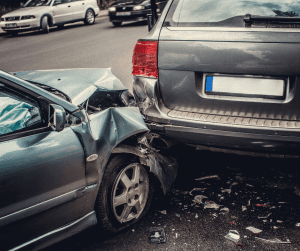When a DUI accident occurs, proving liability is crucial in pursuing justice for the victims and holding the responsible parties accountable. In this blog post, we will delve into the process of establishing liability in DUI accident cases. We will explore the key elements involved in building a strong legal claim, the importance of gathering evidence, and the expertise of HB Injury Law, represented by attorneys Humphrey and Ballard, in advocating for DUI accident victims.
-
Establishing Driver Impairment and Negligence
- Police Reports and Field Sobriety Tests
– Discuss the significance of police reports, which often contain valuable information about the driver’s behavior, statements made at the scene, and observations of impairment.
– Explain the role of field sobriety tests, such as the walk-and-turn test or the horizontal gaze nystagmus test, in assessing a driver’s level of impairment.
- Blood Alcohol Concentration (BAC) Test Results
– Highlight the importance of BAC test results, which provide objective evidence of a driver’s intoxication level.
– Discuss the legal implications of exceeding the legal limit and how it strengthens the case for establishing liability.
- Witness Testimonies and Expert Opinions
– Explore the value of witness testimonies, including statements from passengers, pedestrians, or other drivers who observed the driver’s behavior prior to the accident.
– Discuss the role of expert opinions, such as toxicologists or accident reconstruction specialists, in providing professional analysis and supporting the claim of driver impairment.
-
Demonstrating Negligence or Recklessness
- Violations of Traffic Laws
– Explain how the driver’s violation of traffic laws, such as speeding, running red lights, or reckless driving, can contribute to establishing negligence or recklessness.
– Discuss how evidence of these violations strengthens the case by demonstrating a disregard for the safety of others on the road.
- Eyewitness Accounts and Video Surveillance
– Highlight the importance of eyewitness accounts and video surveillance footage in capturing the driver’s actions leading up to the accident.
– Discuss how these sources of evidence can corroborate negligence or recklessness, such as swerving between lanes or exhibiting erratic driving behavior.
- Prior DUI Convictions or History of Substance Abuse
– Explore how a driver’s prior DUI convictions or history of substance abuse can be used as evidence of a pattern of dangerous behavior.
– Discuss the potential impact of this information in establishing a stronger case for liability.
III. Establishing Causation and Damages
- Medical Records and Expert Testimonies
– Highlight the importance of medical records documenting the injuries sustained by the victims, linking them to the DUI accident.
– Discuss the role of medical experts in providing professional opinions on the causation between the accident and the injuries suffered.
- Financial Documentation and Impact on the Victims
– Explain the significance of financial documentation, such as medical bills, rehabilitation expenses, and lost wages, in demonstrating the damages suffered by the victims.
– Discuss the emotional and psychological impact of the accident on the victims and how it factors into establishing the extent of the damages.
- Accident Reconstruction and Investigation
– Discuss the role of accident reconstruction experts in recreating the sequence of events leading to the accident.
– Explain how thorough investigation, including analyzing skid marks, vehicle damage, and road conditions, can provide additional evidence to support the claim of liability.
Conclusion:
Proving liability in DUI accident cases requires a comprehensive approach that involves gathering evidence of driver impairment, demonstrating negligence or recklessness, and establishing causation and damages. HB Injury Law, represented by attorneys Humphrey and Ballard, possesses the expertise and dedication to building strong legal claims for DUI accident victims. By working diligently to gather evidence, consult with experts, and navigate the legal process, they strive to hold the responsible parties accountable and help victims obtain the compensation they deserve.

